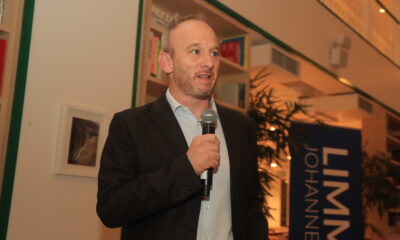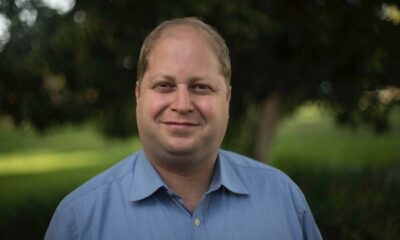
The Jewish Report Editorial
Orthodoxy and Limmud – an unhealthy stand-off
GEOFF SIFRIN
A storm among UK Jewry involving secular and religious leaders, about the relationship between Orthodox Jewry and Limmud, has echoes in Jewish communities worldwide, including South Africa’s.
Limmud started in England in 1978. After 35 years, the annual conferences have proliferated to 60 countries, become an educational platform in numerous languages, and include everything from Talmud study, technology, Jewish history, art, music, mysticism and other topics.
It is an excellent opportunity for diverse Jews to mingle and get to know each other. Thousands of participants of various ages and religious backgrounds attend.
The Orthodox establishment has generally refrained from formally accepting Limmud’s “legitimacy” as a platform for Jewish teaching. The first Limmud in South Africa was in 2007.
In 2008, the Southern African Rabbinical Association discouraged members from participating, referring in a resolution to its “existing policy toward the upcoming Limmud learning programme, which is that no (Orthodox) rabbi will accept an invitation to participate” and stating that rabbis in a position to dissuade people from attending, would do so.
Since then an uneasy truce has operated, without public denunciations. Initially, Orthodox Jews were not evident at Limmud, but an increasing number of kippa-wearing Orthodox Jews now attend.
International Orthodox rabbis like Nathan Luis Cardozo have participated. South African Orthodox rabbis, however, have held back.
The international scenario changed dramatically a few weeks ago when the UK’s new chief rabbi, South African-born Ephraim Mirvis, announced he would attend the next UK Limmud, scheduled for December.
He told the London Jewish Chronicle: “One of my primary functions is as teacher of the community. I see Limmud as an opportunity to teach Torah to large numbers of people who want to learn.”
Then last week seven strictly Orthodox rabbis, among them former head of the London Beth Din, Dayan Chanoch Ehrentreu, published a letter in a haredi newspaper, saying “any Jew whose heart has been touched by the fear of G-d and who wishes to walk upon paths which will be viewed favourably” must not attend Limmud.
The gathering has non-Orthodox rabbis teaching Torah, leading them to say: “Participating in their conferences, events and educational endeavours, blurs the distinction between authentic Judaism and pseudo-Judaism and would bring about tragic consequences for Anglo-Jewry.”
The next salvo came quickly, when 30 senior community leaders, politicians and philanthropists, in an open letter, reproached the seven rabbis for a “shocking failure of leadership”. It was backed by Board of Deputies President Vivian Wineman, Jewish Leadership Council Chairman Mick Davis (a former South African) and senior US figures.
The Chief Rabbi’s presence at Limmud, they said, “should be welcomed and not be the subject of misplaced and disrespectful criticism”, and the seven rabbis’ assertion that participants will not be viewed favourably by G-d, has the power to “cause great harm to our community and appears to be rooted in tactical power play, as opposed to religious principle”.
Among South African Jewry, the issue sits like the proverbial “elephant in the room”. Limmud SA consolidates itself year by year, with participants including a wide variety of Jews. It is unhealthy for this community that the matter remains in a stand-off, causing unhappiness among significant sectors.
The community’s lay leadership is generally enthusiastic about Limmud and have expressed this publicly, including the SAJBD and other organisations. Many senior leaders have attended Limmud.
South African Jewry has a history of tolerance and accommodation between its various sectors going back many years. The stunning success of recent projects emanating from the Orthodox establishment, such as Sinai Indaba and The Shabbos Project, open more opportunities to follow this line.
The community needs to find a solution which will allow anyone to attend Limmud if they wish, without pressure or risk to their positions, and that will not push anyone to go to Limmud if they do not want to.










